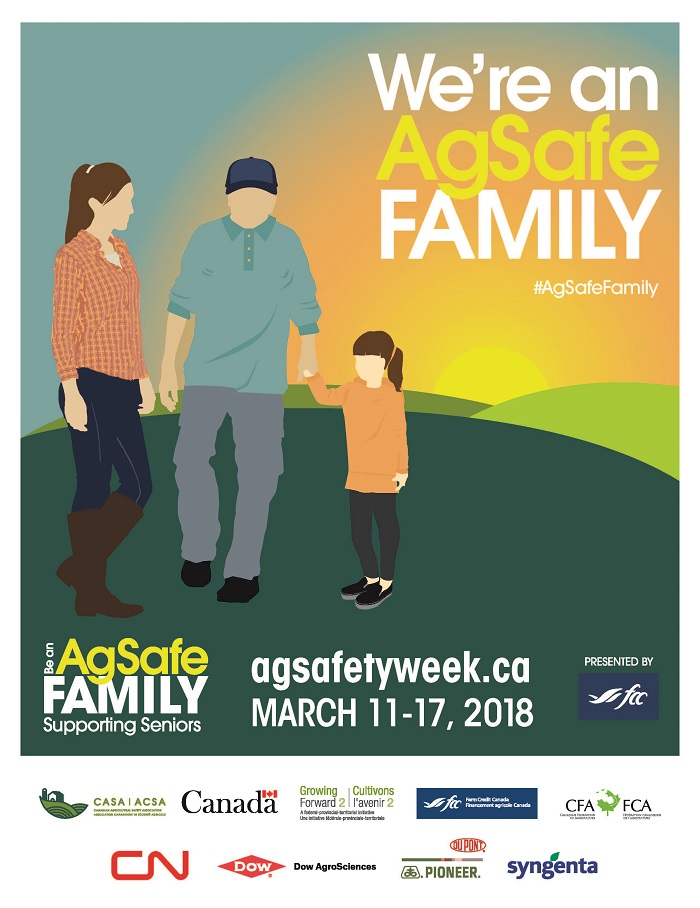
There are lots of honorary days and weeks to promote health and safety, but Farm Safety Week (March 11 – 17 this year) is the one closest to my heart.
I’ve lived in farming areas since the age of four, and for the past 21 years my husband and I have operated a farm, raising sheep, cattle and a few pigs on 120 acres in Northeastern Ontario.
There are no end of ways to hurt yourself on a farm. I’ve pinched fingers connecting a tractor loader, been shocked by an electric fence, hit my head on the barn trusses moving square hay bales, and got kicked in the eye by a sheep (don’t ask).
All my injuries have been pretty minor, but my heart breaks when I hear of the deaths and devastating injuries on Canada’s farms. The most recent statistics from the Canadian Agricultural Injury Reporting (CAIR) database are from 2012, and they show an average of 85 fatalities per year on Canadian farms – almost two every week. Like every sector, we know there are hundreds more injuries, some of them life-altering. And because farming is a family business, and because we live where we work, the tragedies happen to everyone from infants to 80 year olds. That’s why the focus for Ag Safety Week is on families – a three-year year campaign that has highlighted safety for kids, adults and now, seniors.
When you live and work on a farm, you tend to expect and accept that injuries are part of the deal. For me, this causes a huge cognitive disconnect. Through my work with Threads of Life, I understand the emotional devastation that happens when someone is injured or killed on the job. And like every parent or spouse, the very last thing I would want is to see one of my family members hurt. I have nightmares about it. Yet the same hazards that I accept for myself are the ones that could hurt the people I love.
I believe that all injuries are preventable. I know that all my little cuts and bruises and strains have been preventable. We have learned about how to control these hazards – improving our animal handling, our communication, our equipment procedures. We bought a new tractor recently, and it’s kind of exciting to see the safety features that are standard now. Like any other sector, our workplace needs a combination of better procedures, equipment, PPE and attitudes to make it safe. We need to learn not only from our own mistakes, but from all the best research, knowledge and recommendations we can find.
Farm families are some of the hardest working people I know. They’re also some of the smartest, with expertise in biology, physics, mechanics, meteorology, construction, management, marketing, and more. For many farmers, safety is joining that list of specialties. As the knowledge and focus grows, I believe we’ll be able to bring an end to life-altering injuries and deaths on Canadian farms.

- The State of Safety in Canada, 2024 - May 23, 2024
- Yes, you are making a difference. Thank you so much. - May 16, 2024
- Meet one of the families you’ll help through Steps for Life - February 1, 2024

 Find Support
Find Support Donate
Donate